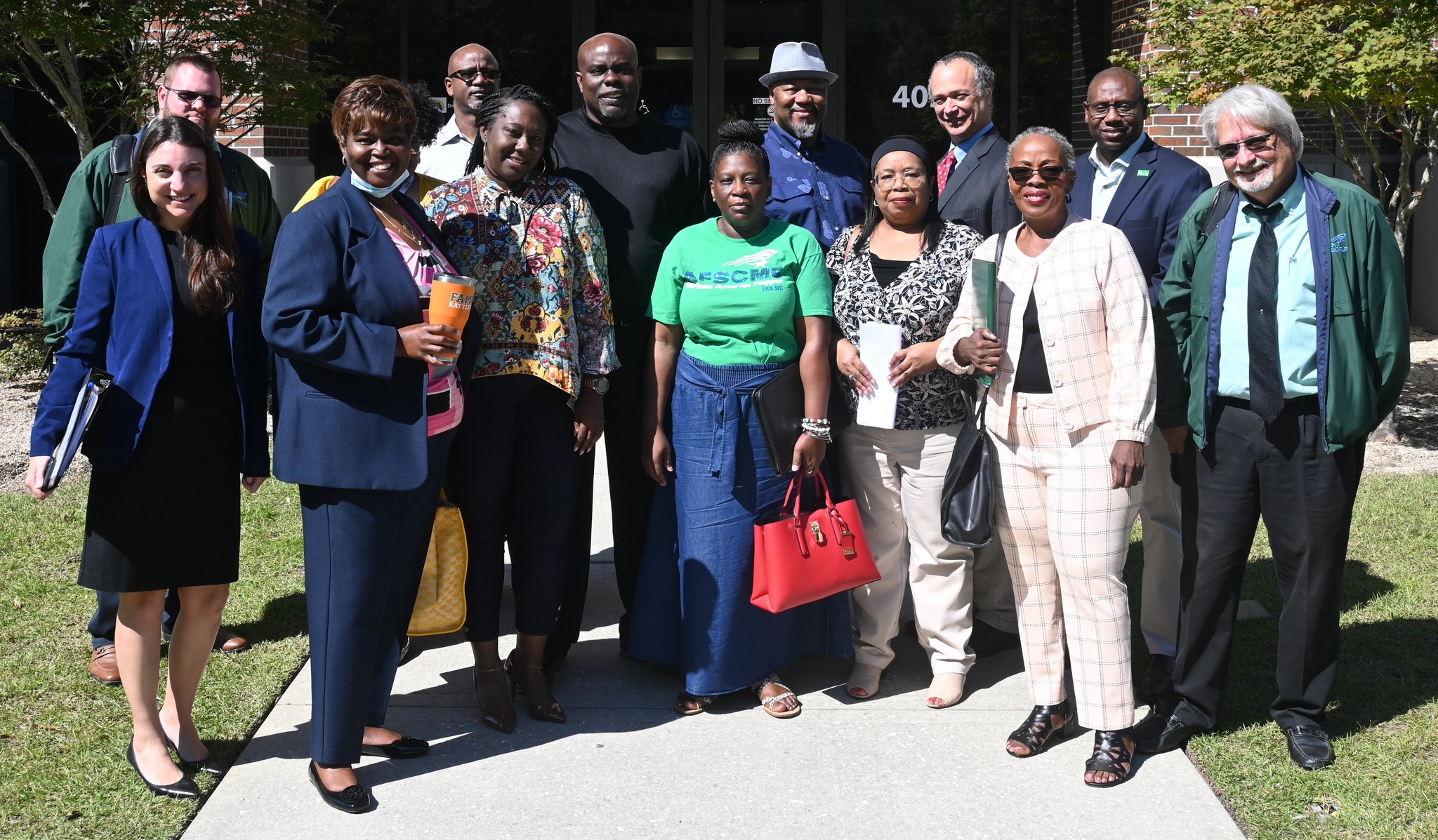After interviewing several AFSCME state bargaining unit members, Tampa Bay Times reporter Emily Mahoney dug into the numbers and documented the unfilled positions within Florida’s state workforce. Her story clearly demonstrates a persistent lack of commitment to providing the vital services Florida residents need.
Skilled and dedicated state workers who have stayed true to their mission of serving Florida’s residents and fearless union members told of the impact of the mismanagement. Their testimony shows that state leaders have not kept up their end of the bargain with careers that offer competitive benefits. Even as key state agencies have been operating with nearly 25% of jobs unfilled, the state legislature has responded with SB 256, legislation designed to make it more difficult to maintain a quality workforce by taking away workers’ very freedom of speech and their union contract.
Under the legislation, state workers will have to rejoin their union using an alternative dues system at www.afscmefl.org/join and maintain more than 60% membership to retain certification. The resulting loss of a state contract that took decades to develop would worsen working conditions across the state. It is a challenge faced by public service workers across the state, except for police, fire and corrections workers who were excepted due to political favoritism.
“A few workers interviewed by the Times said new laws pushed by DeSantis could make their jobs harder, including one that may threaten the future certification of the largest union of state employees,” Mahoney writes.

Whittingham
“The morale here is at an all-time low,” said Paul Whittingham, who trains new hires at the Northeast Florida State Hospital near Jacksonville, where he has worked for more than 22 years.

Brady
Reginald Brady, a 29-year veteran with the Department of Children and Families and a senior child protective investigator, said he’s concerned by one tactic the state has used to try to fill positions: lowering hiring requirements. While a bachelor’s degree used to be required for child protective investigators, he said he’s now seeing people get hired with an associate’s degree plus two years of job experience in unrelated industries — like working at a restaurant.
“It’s putting families in jeopardy because you don’t have the same type of qualifications or training,” Brady said.

Johnson
Some employees are “at the point where they become sick, they have to go to … counseling because of the distress, the anxiety,” said Althera Johnson, who worked nearly 28 years mostly in the Department of State, until she left last year. “They are stressed out because of the workload. They are stressed out because of management.”
In addition to the anti-worker legislation, a deluge of new measures threatens the specific populations serviced by the AFSCME workers quoted.

Francis
Nate Francis, a probation officer with the Department of Juvenile Justice in Miami, said he’s concerned about the permitless carry law leading to more guns in the neighborhoods where he visits kids.

Krings
Lizette Krings, who has worked for the Department of Health for 18 years, said she expects the law banning most abortions after six weeks will lead to more low-income mothers seeking help from the nutritional food program she works for in Miami. The law is not currently in effect, but the Florida Supreme Court, which has five DeSantis appointees, is expected to greenlight it later this year.
“It feels like we’re reverting back, we’re regressing,” Krings said.
AFSCME state workers face a challenge to their careers’ missions, the state contract and ability to bargain for better pay and benefits if they allow SB 256 to take away their union voice. They are choosing to stand up for their careers by going to www.afscmefl.org/join and encouraging co-workers to join the movement for a stronger union, better state services and more caring Florida.

